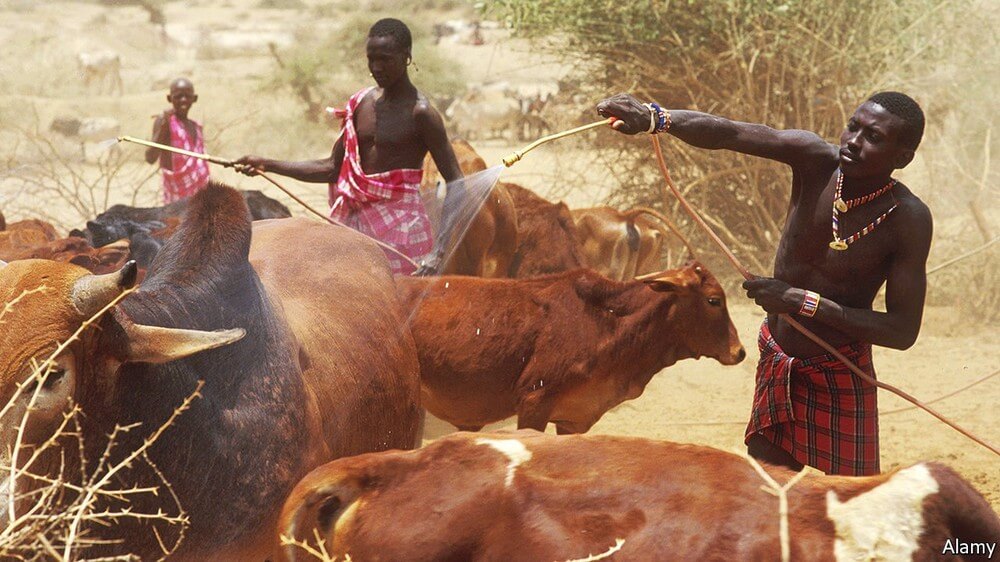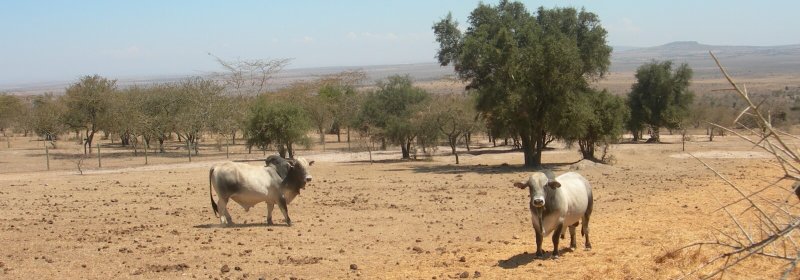East Coast Fever (ECF) is rampant [in African countries]. ECF, which is caused by protozoan parasites spread by ticks, kills around 1m cattle a year. It also prevents the introduction of faster-growing, higher-yielding European breeds, which are much more susceptible to the illness than their African kin.
Though a vaccine is available, and the ticks can be attacked with sprayed pesticides (see picture), both of these approaches are costly. Most farmers thus continue to use less-productive local varieties—curtailing their incomes and reducing agricultural output. The difference is stark: a Kenyan cow produces around a tenth as much milk as one in Britain.

…
By reducing mortality and increasing productivity, gene-edited European livestock could have a useful effect in Africa—though some worry the benefits are overstated.































